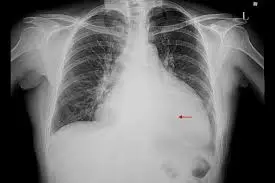Cyclospora
By Gabriela Calvi – Epidemiologist| Educator and Health Advocate| Podcaster “Good Morning Health”
Benjamin Franklin was right, saying a few profound words in 1736, “An ounce of prevention is worth a pound of healing.”
As we are entering the summer months, where certain outbreaks of infectious diseases usually occur. It is preferable to be a little cautious before a major crisis occurs than to having to fix a more complicated health problem.
Cyclospora is a tiny microscopic parasite, which is not seen with the naked eye. A microscope is needed to witness this single-celled parasite. It is protected by an exterior wall that makes it resistant to disinfectants. At the same time, it has superficial adhesions. Cyclospora can affect the intestinal tract causing watery and sometimes explosive diarrhea. The cause of Cyclospora infection is caused when a person eats food or water contaminated with faeces.
Symptoms may usually occur 2-14 days after you have ingested a food or drink contaminated water. However, the average day of incubation of infection usually occurs, on day 7.
Other symptoms associated with Cyclospora infection include; nausea, vomiting, stomach pain, muscle pain, weight loss, swelling, flatulence and belching, fever, fatigue – this symptom may remain for a long time after the active infection has improved.
Cyclospora infections can occur in people of all ages. It is associated with foreign trips to tropical or subtropical regions of the world. In the United States, outbreaks have been linked to several types of imported fresh produce. These outbreaks usually occur to you from May 1st to August 31st.
Infections related to Cyclospora outbreaks in the United States are caused by several imported fresh products, such as coriander, as varied mixtures of salads, basil, peas and raspberries.
I recommend seeing your family doctor if you notice that diarrhea has caused other bowel disorders. Especially if the diarrhea is persistent, lasting several days or reappearing. To find the root cause of your health problem. It is advisable to consider the types of food ingested when traveling to a region where parasites such as Cyclospora are common. Since they will be a key piece so that the corresponding tests can be performed and thus reach the root of the problem of your diarrhea.
On the other hand, diarrhea causes dehydration. To prevent this from happening you must keep your body hydrated during the days you are sick. If you have some of these symptoms such as sunken eyes, dry mouth and tongue, decreased tear production, reduced urine production, these are signs and symptoms of dehydration from persistent diarrhea, and you should consult your doctor.
The easiest way to prevent Cyclospora infection is by avoiding contact with foods or water that may have become contaminated with faeces. Adults and children with diarrhoea should not go swimming. At the same time, they should not show up for work and/or attend school.
It is important to have a good hand washing routine with soap and water, before preparing food, or eating them. After going to the bathroom. After changing diapers. After caring for someone with diarrhea
When traveling to developing countries, it’s critical to be careful what you eat and drink. However, outbreaks of Cyclospora infection have been associated with food imported into the United States and Canada or produced there. It is recommended to drink bottle water, or from sources that are reliable. If you do not have access to drinking water, I recommend boiling the water for 1 minute. If you drink water from a restaurant, drink ice-free water. Remember not to eat fruits that have not been washed and/or peeled by yourself.
When swimming, be very careful not to ingest recreational water where you go swimming, it can be contaminated with other microorganisms harmful to your health. Remember prevention will always be your ally to alleviate long-term health problems.


